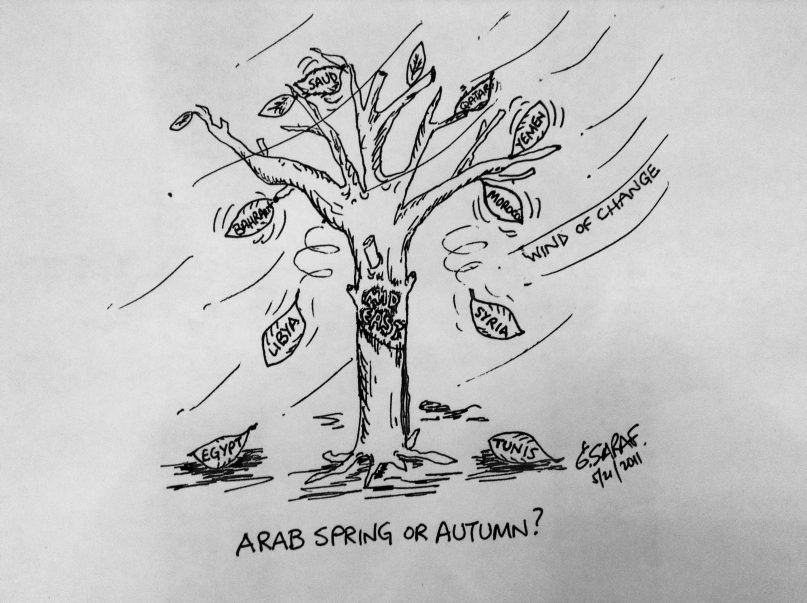

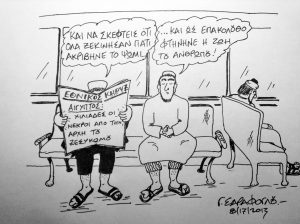
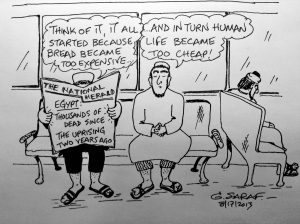
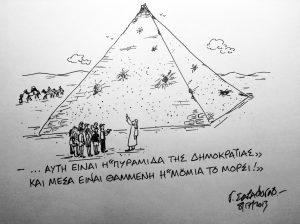
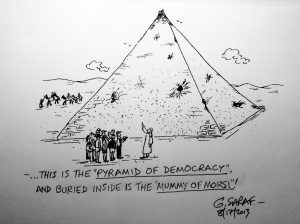
Σκίτσα από το αρχείο μου της εποχής της Αραβικής Άνοιξης.
Ο ξεσηκωμός του κόσμου τότε ανάγκασε τον επί 30 χρόνια αυταρχικό πρόεδρο της Αιγύπτου Μουμπάρακ να παρατηθεί.
Ακολούθησαν οι πρώτες δημοκρατικές εκλογές τις οποίες κέρδισε ο Μόρσι της Μουσουλμανικής Αδελφότητας. Το τελευταίο κόμμα που θα ήθελαν οι Αμερικάνοι και Εβραίοι στην εξουσία.
Λίγους μήνες αργότερα οργανώθηκε από τον στρατό και τα γνωστά/άγνωστα κέντρα ένα πραξικόπημα(coup) εναντίον του Μόρσι και ανήλθε στην εξουσία ο στρατιωτικός Ελ-Σίσι ο οποίος είναι μέχρι και σήμερα πρόεδρος!
Former Egyptian President Hosni Mubarak has died at age 91. A deeply polarizing figure who spent 30 years in power, Mubarak was an autocratic leader who jailed and tortured opponents, but he remained friendly toward the United States and other allies abroad. And it was opposition to Mubarak’s reign that ignited Egypt’s version of the Arab Spring.
In January 2011, the edifice of Hosni Mubarak’s Egypt crumbled. He’d been called a modern-day pharaoh, but the millions who filled Cairo’s Tahrir Square exposed a country weakened by decades of his corruption and cronyism.
And the following month, many Egyptians celebrated his fall as the birth of democracy.
But like much of the Arab Spring, elation preceded oppression. A democratically elected president was overthrown in a coup by former army chief and today’s President Abdel Fattah El-Sisi.
Mubarak outlived the revolution that overthrew him, but was only seen in court. And while he was humbled, to the end, he was defiant. He rose to power in the air force and became vice president to Anwar Sadat, taking over after Sadat’s 1981 assassination.
He was initially considered a charismatic reformer, and fashioned himself the only guarantor of stability in Egypt and the Middle East, as he told “NewsHour” host Charlayne Hunter-Gault in 1993.
Hosni Mubarak:
The stability of this part of the world cannot be maintained without Egypt. I don’t think that it will be in the interest of the West or the United States that Egypt to be unstable.
But Mubarak’s stability was autocracy. He jailed political opponents without trial, and his police committed widespread torture.
Poverty increased. The availability of bread plummeted. And when that deprivation combined with corruption to spark the 2011 protests, his security forces killed hundreds of demonstrators.
In 2012, Mubarak defended himself from his sickbed. He was sentenced to life in prison, but successfully appealed. He later was sentenced to three years in prison on corruption charges, but was released in 2017.
He died today in this hospital, remembered most not for his autocratic rule, but for the protests that ended it.
From the “PBS NewsHour”
* Το άρθρο απηχεί τις απόψεις του συντάκτη του.
The article expresses the views of the author
iPorta.gr

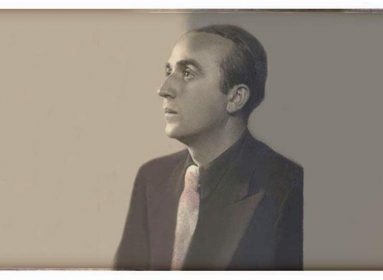


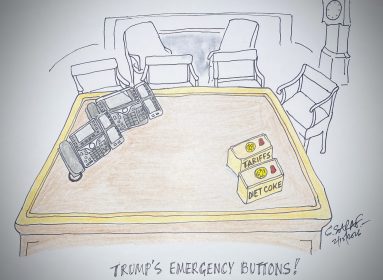

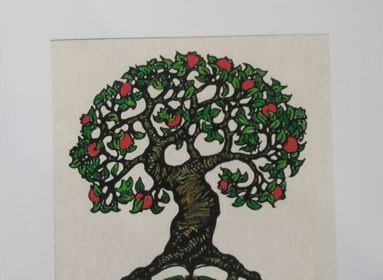
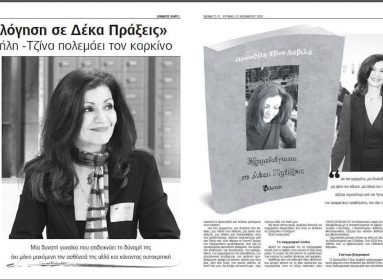
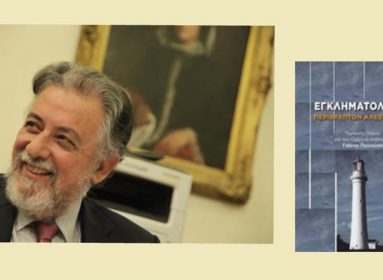









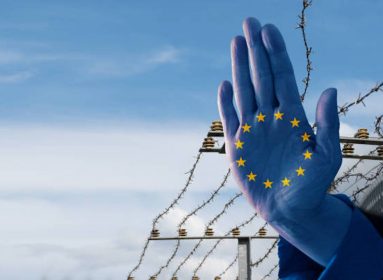
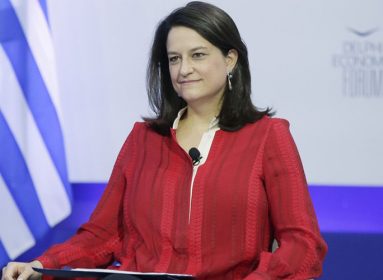
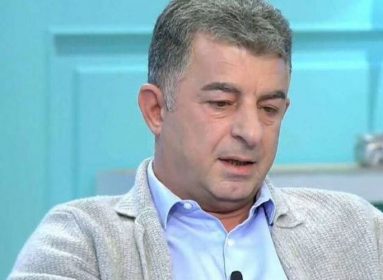
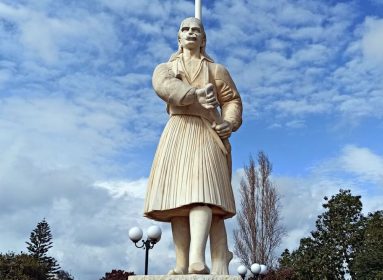
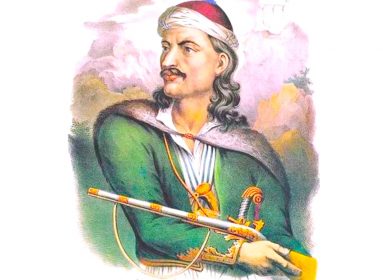
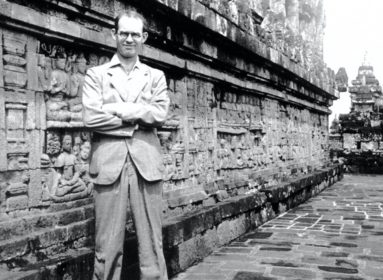
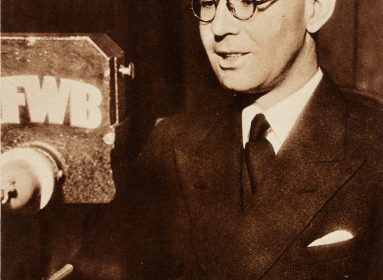
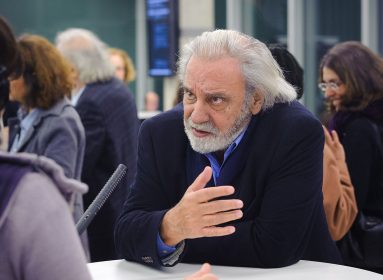



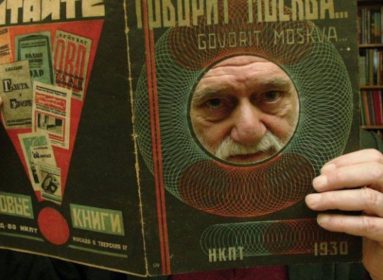
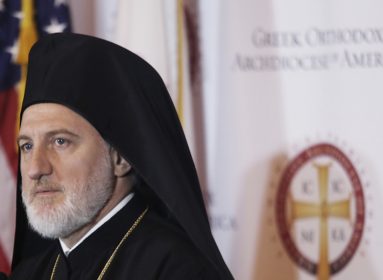
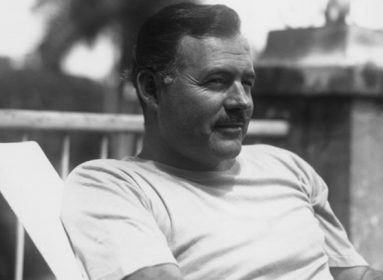

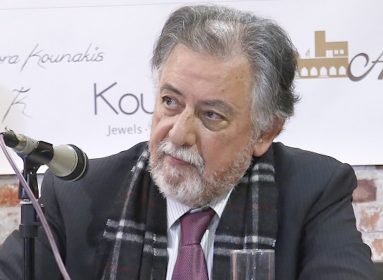
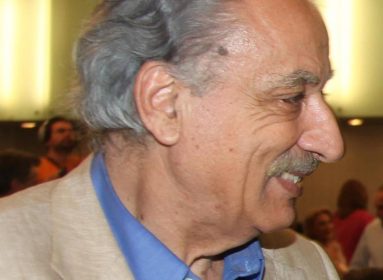
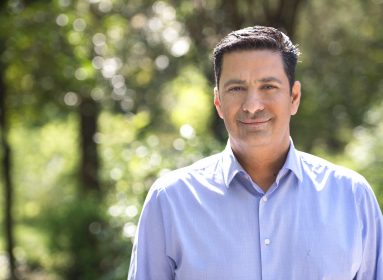
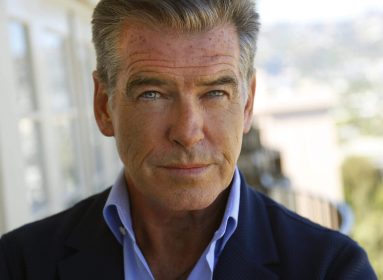
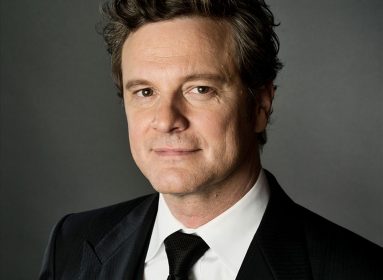



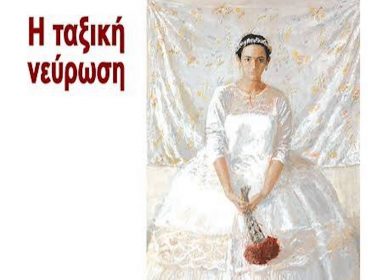
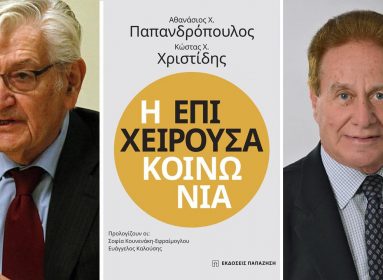
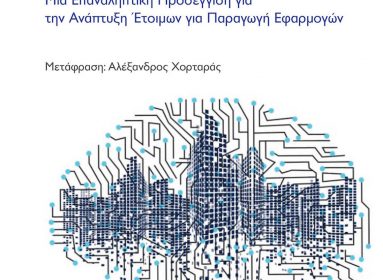


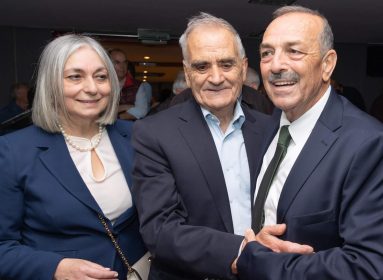



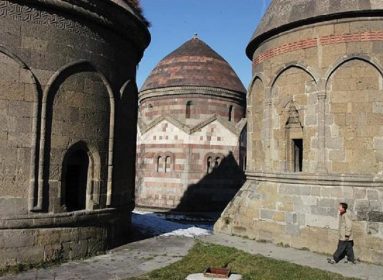
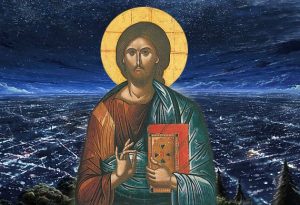


 Το σκίτσο είναι του Βαγγέλη Παυλίδη
Το σκίτσο είναι του Βαγγέλη Παυλίδη

 Στηρίξτε-Ενισχύστε την iΠόρτα με τη δική σας χορηγία…
Στηρίξτε-Ενισχύστε την iΠόρτα με τη δική σας χορηγία…